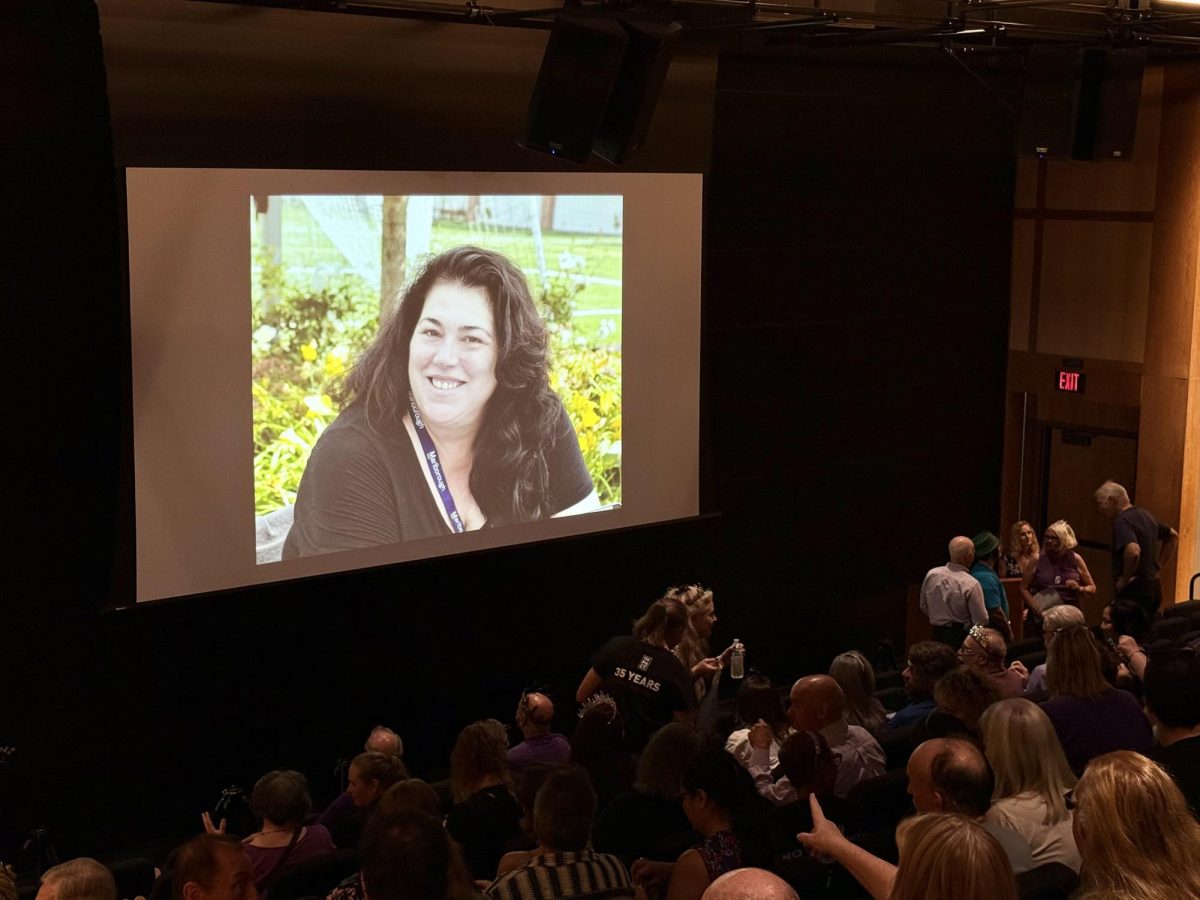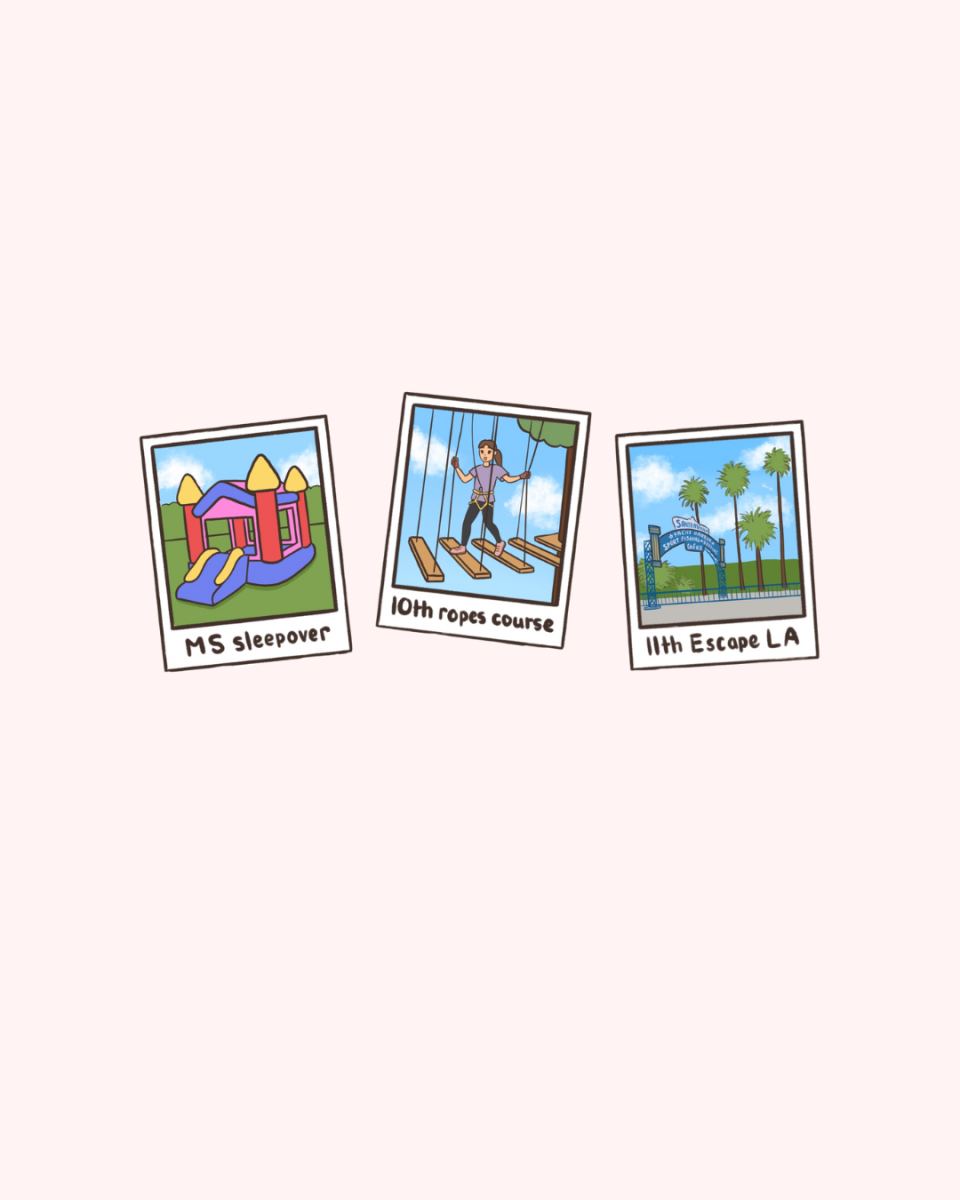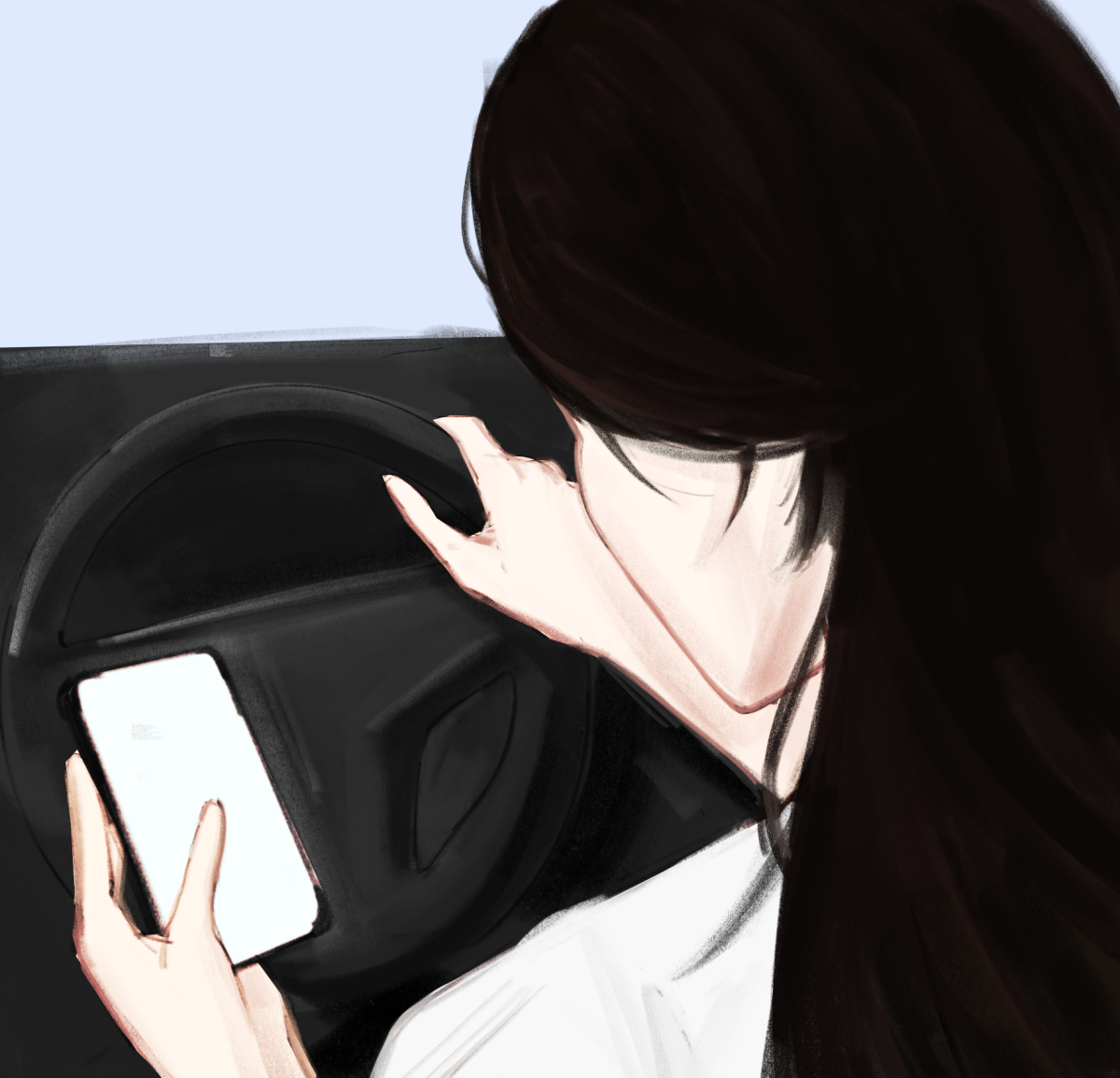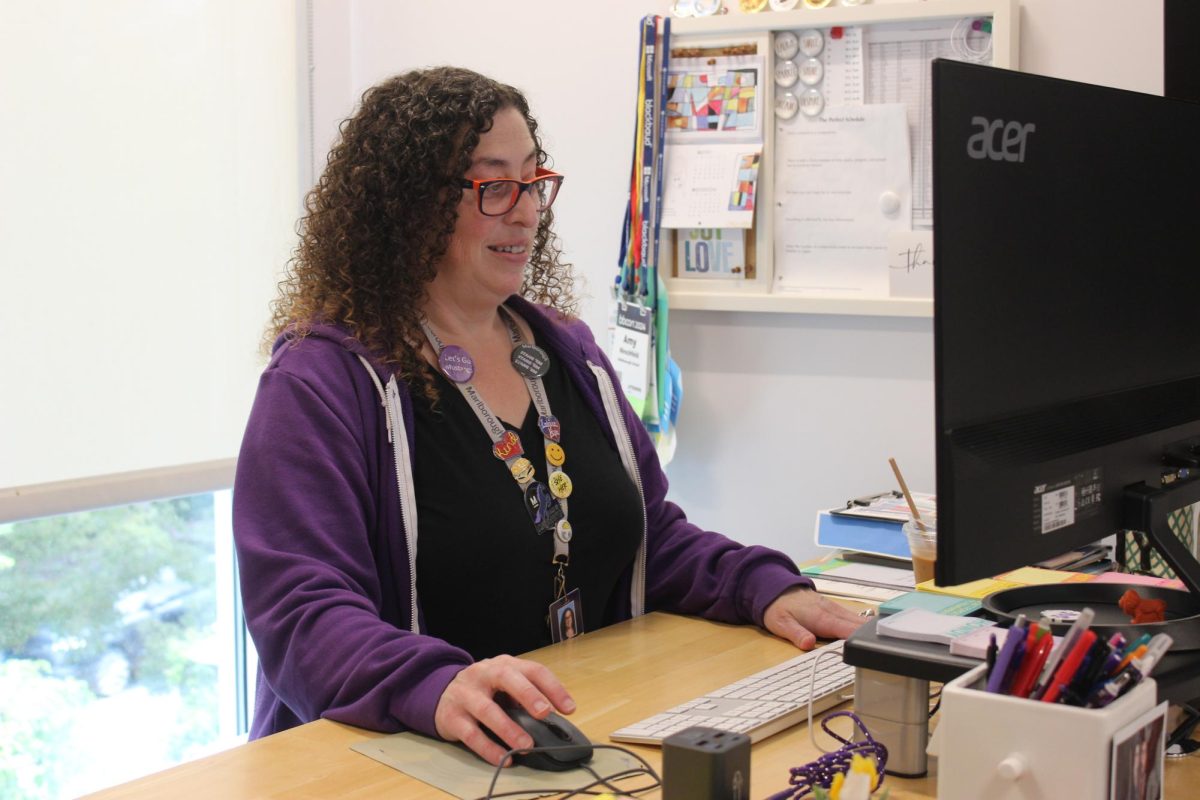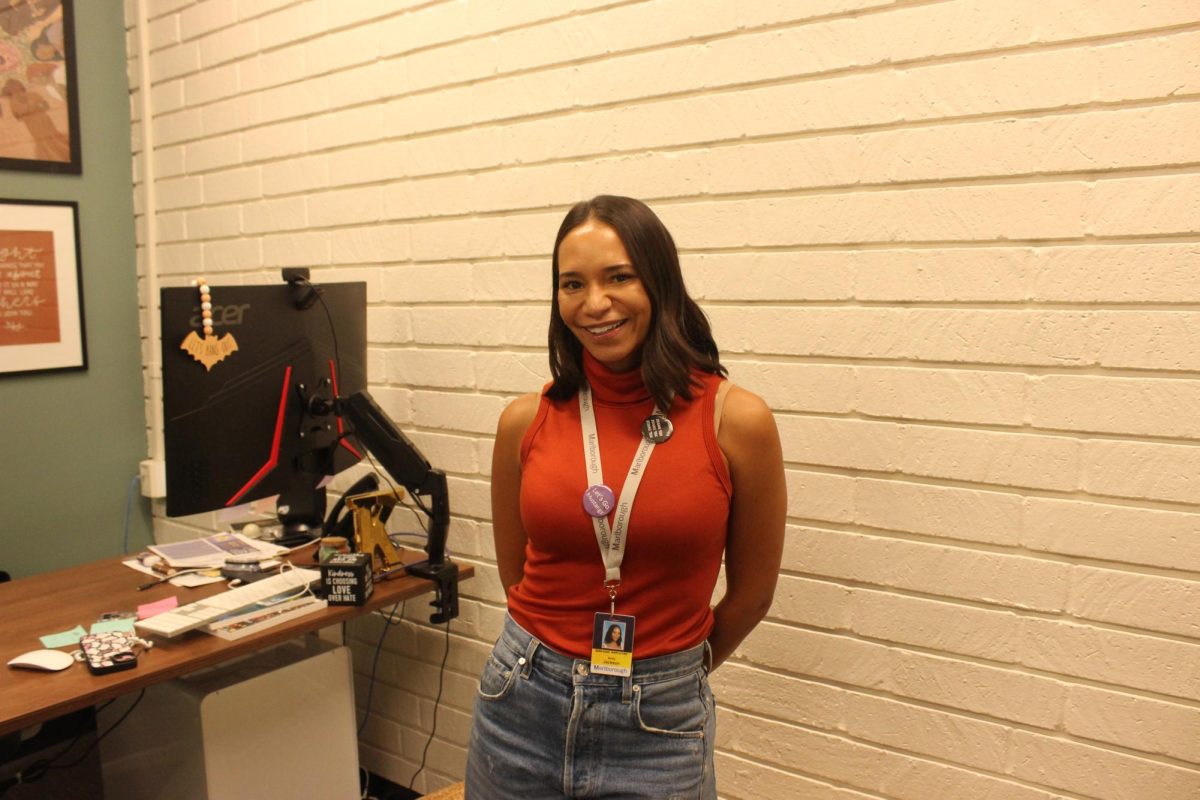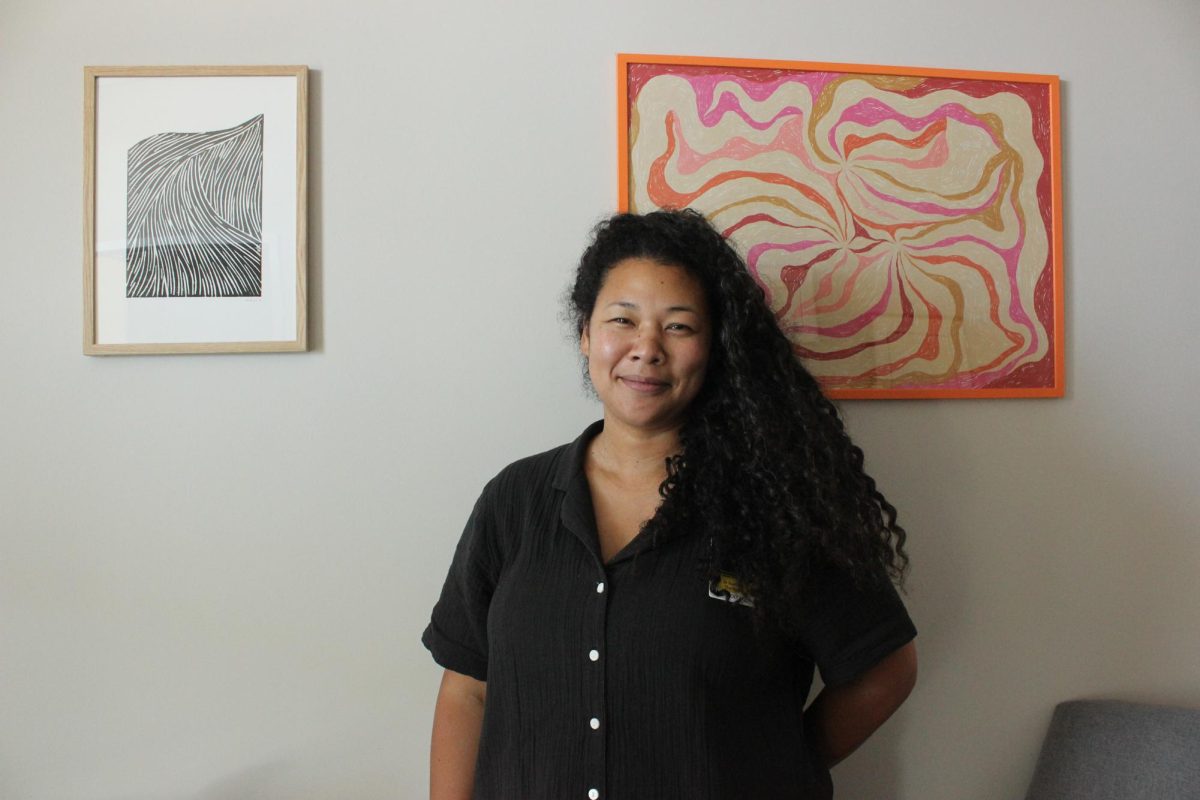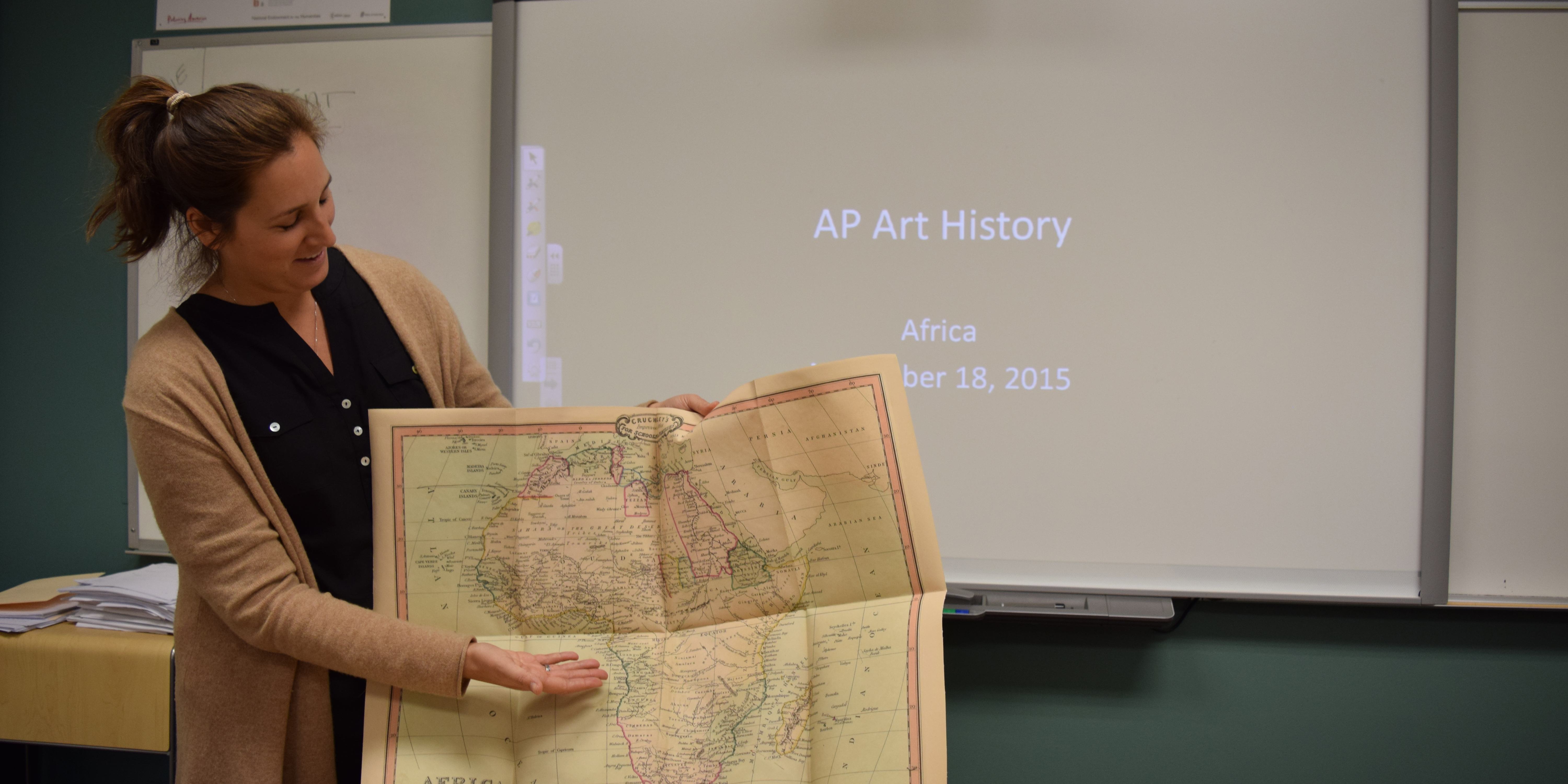
Photo by Natalie Swartz ’16
Ten of the 14 students who started the year taking AP Art History with the Online School for Girls have moved out of the online class, after students reported issues with grading feedback and instruction style in the online class, which was the maternity leave replacement for English instructor Elizabeth Donnell. Four girls dropped the course, and six girls moved into a face-to-face class for the second quarter taught by development temp Erica Jones ’02, who is the curatorial assistant of African arts at UCLA’s Fowler Museum, and Associate Director of Academic Technology Shauna Callahan. Donnell will teach the face-to-face class during the second semester.
Students who moved into the face-to-face class said they found the heavy workload and independent learning time in the online class difficult to manage. Many girls said they expected the online class would revolve around lectures, but instruction came primarily from powerpoints and website links posted on the class Haiku page, requiring girls to spend more time learning the material on their own than they had anticipated.
“I felt very alone when I was taking the online class,” said Julia ‘16, who moved into the face-to-face class. “There was a huge sense of independence, which can be a very good thing, but [now] it’s easier to talk about assignments and progress.”
Because all communication was online, girls said there was a delay in feedback on work and questions. Questions that a teacher could have answered immediately in a traditional classroom format needed to be sent and answered over e-mail.
“Every time we submitted assignments, it was hard to feel confident that I’d met class expectations,” Cardenas said.
Lag time was also an issue with the online grade book, which was not always immediately updated following assessments, creating confusion about grades for some girls.
Assistant Head of School and Head of the Upper School Laura Hotchkiss ’86 notified students in June that they would take the class online during the fall semester while Donnell was on leave. Hotchkiss said the School lacked candidates for the part-time one-semester substitute position as AP Art History instructor and had received positive feedback in the past about OSG classes.
The decision marked the first time Marlborough required that students take a class online. In the past, students enrolled on voluntarily in OSG classes not offered at Marlborough, such as AP U.S. Government and AP Psychology. At the end of the first quarter, Hotchkiss decided to offer the face-to-face class for the second quarter when Jones and Callahan became available to teach.
Hotchkiss said she was disappointed that the online class did not work for more girls. She said she learned that online classes work better at Marlborough as an option, rather than as a requirement.
“I think it’s been a great learning experience for me,” said Hotchkiss. “Our girls want choice. I think the fact that they didn’t have a choice was at the root of some of these problems.”
OSG instructor Janice Wilke was not available to comment because she is leading a trip in Italy. OSG Executive Director Brad Rathgeber said that the number of students who left the online class was an anomaly for OSG. Rathgeber said that students can make the most out of online classes if they have different expectations from their face-to-face classes.
“If they come into the space thinking…‘I get a chance…to learn in a different way that’s more like the type of experience I’m going to have in college,’ then most of those students find great success,” Rathgeber said.
The four girls who remained in the online class were satisfied with the independent learning style online or did not have a free period during the class time.
“I realized that the class was about being an independent worker, so I started to get into the groove of it,” Olivia ’16 said.
Jones said that she hopes she can share her joy in art history, which started with the AP Art History class she took at Marlborough with former visual arts instructor Lu Wenneker, who retired last year.
“There is a part of me that wants to definitely inspire these students to love art history as much as I do,” Jones said. “Part of me feels like I’m giving back a little bit, passing it forward.”

